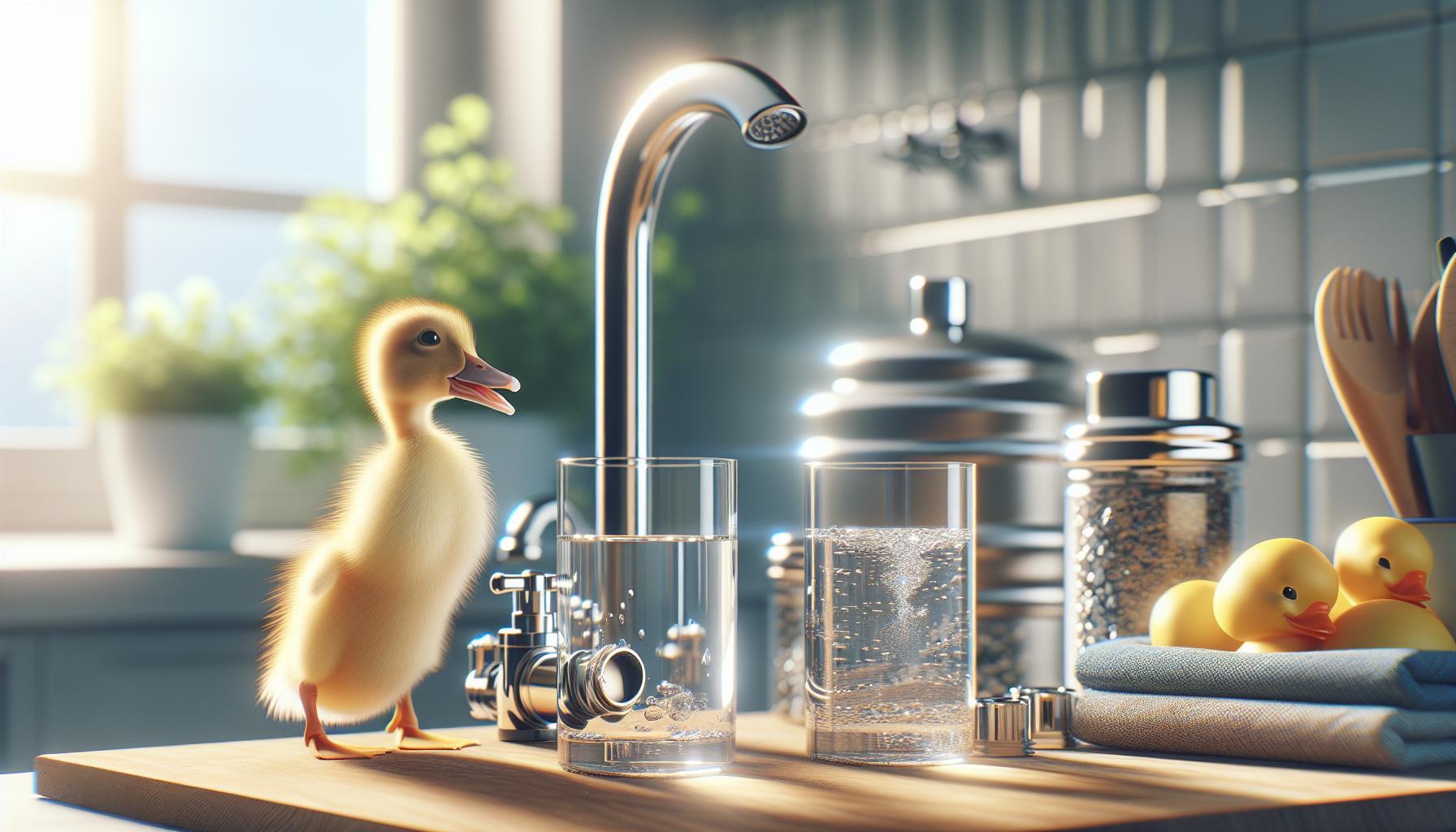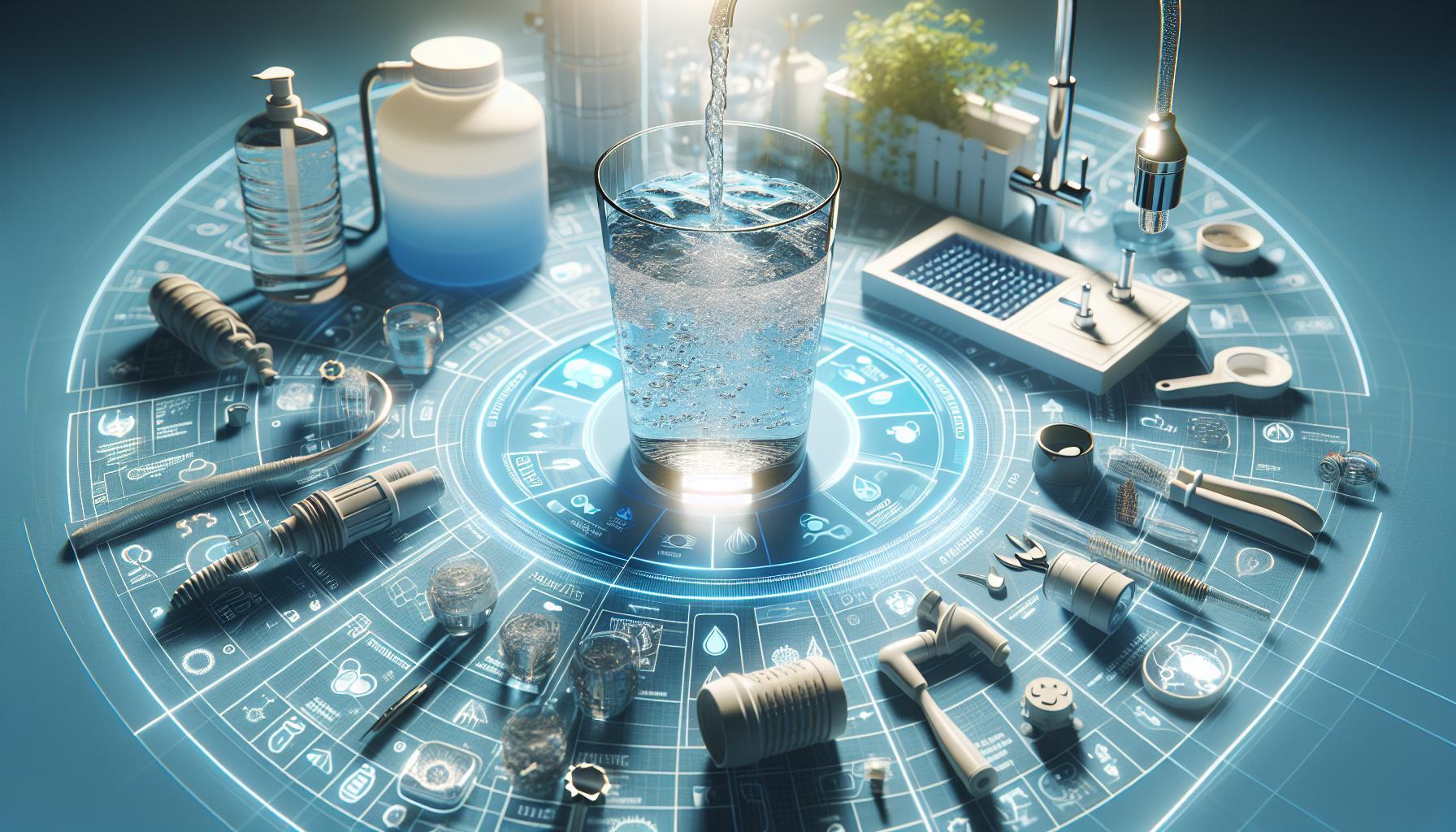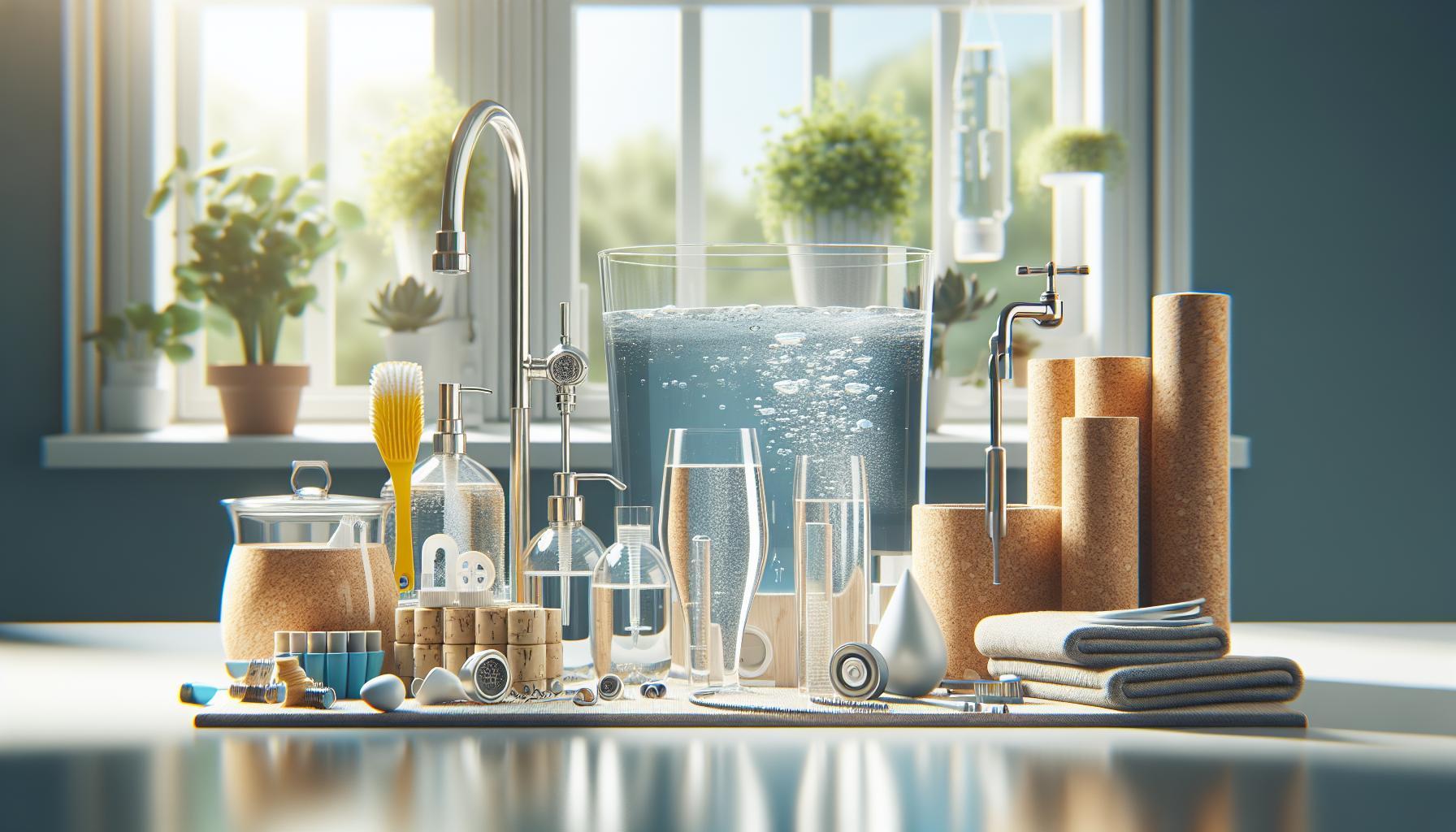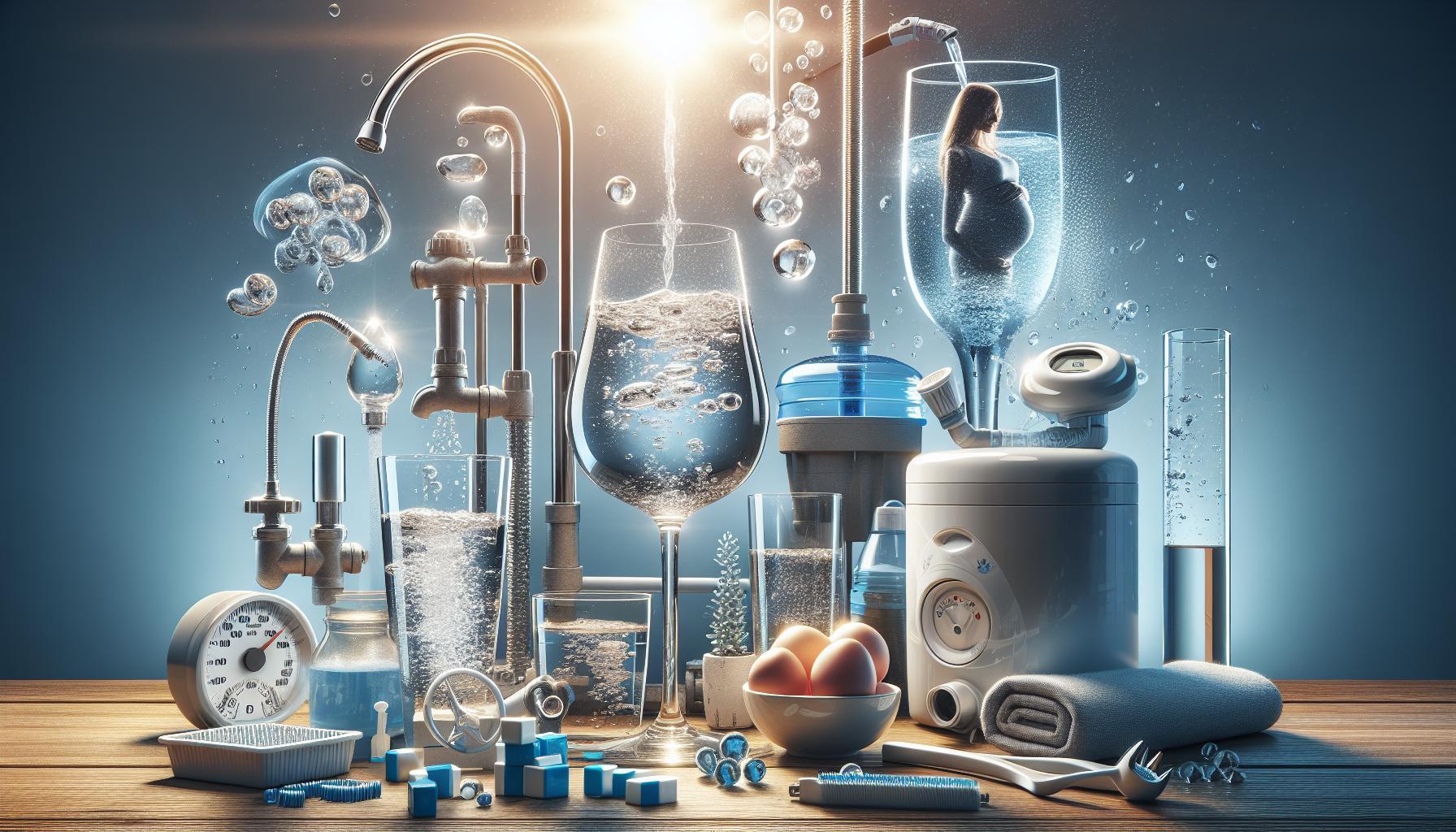Wondering how long ducklings can survive without water? This crucial aspect of their care can greatly impact their health and development. Understanding their hydration needs is vital for anyone raising these adorable birds. In this article, we’ll uncover essential care tips to ensure your ducklings thrive and stay hydrated.
Understanding Ducklings’ Hydration Needs
Providing proper hydration is vital for the health and well-being of ducklings. These adorable, fluffy creatures are not just cute; they are also incredibly dependent on water for their growth and development. Understanding how long ducklings can go without water is crucial for any owner or caretaker. Ducklings can become dehydrated quickly, especially during the first few weeks of life when they are most vulnerable. Therefore, maintaining a constant supply of fresh water is not merely a suggestion; it’s a necessity.
Importance of Hydration for Ducklings
Water plays an essential role in ducklings’ lives. It assists in digestion, regulates body temperature, and keeps their skin feathers in top condition. Without adequate hydration, ducklings may experience several issues, including lethargy, poor growth, and even increased susceptibility to diseases. The impact of dehydration might not be visible at first, but over time, it can lead to more serious health complications.
How Much Water Is Enough?
Ducklings require access to clean water at all times. Here’s a simple breakdown of their hydration needs:
| Age of Duckling | Water Requirement |
|---|---|
| 1-2 Weeks | Constant access to shallow water for drinking and washing |
| 3-4 Weeks | 1 cup of water for every 2-3 ducklings per day |
| 5 Weeks and Older | Access to larger containers for swimming, plus continuous fresh water |
Providing ducklings with a shallow bowl allows them to drink easily without the risk of drowning. As they grow older, their water requirements increase due to their activity levels and size. Keeping their environment clean by changing the water regularly will not only prevent contamination but also encourage them to drink more, promoting healthy growth and development.
Signs of Dehydration
Recognizing the signs of dehydration in ducklings is crucial for immediate intervention. Common indicators include:
- Listlessness: Ducklings may appear lethargic and less active than usual.
- Shriveled skin: The skin may feel dry or look more shriveled.
- Sunken eyes: Their eyes may appear sunken, a clear sign of inadequate hydration.
- Panting: Excessive panting can indicate the duckling is struggling to cool down due to dehydration.
If you observe any of these symptoms, it is essential to provide fresh water immediately and consult a veterinarian for advice. Ensuring your ducklings remain hydrated will not only enhance their quality of life but will also contribute to a vibrant, thriving flock.
Signs Your Ducklings Are Dehydrated
Ducklings require constant access to fresh water to thrive, as they are particularly vulnerable to dehydration, which can occur quickly if their water supply is inadequate. Just like humans, ducklings depend on water for their bodily functions, and a lack of it can lead to dire consequences. Understanding the signs of dehydration can help you act swiftly to ensure the health and well-being of your feathered friends.
Recognizing Dehydration in Ducklings
It’s crucial for anyone raising ducklings to be aware of the symptoms that indicate dehydration. Here are some common signs to look out for:
- Listlessness: Dehydrated ducklings often appear lethargic or disinterested in their surroundings.
- Ruffled Feathers: If their feathers look particularly fluffed or messy, it may indicate that they’re not feeling well.
- Dull Eyes: Healthy ducklings typically have bright, alert eyes. If their eyes appear dull or sunken, dehydration may be the cause.
- Dry Beak: A dry or cracked beak is another clear sign that your ducklings may need water.
- Decreased Activity: If your ducklings are spending more time resting instead of exploring or playing, it may be a warning sign.
- Irregular Breathing: Rapid or labored breathing can signal distress caused by inadequate hydration.
Immediate Actions to Take
If you suspect that your ducklings are dehydrated, swift action is essential. Here are practical steps you can take:
| Action | Description |
|---|---|
| Provide Clean Water | Immediately offer fresh, clean water in a shallow dish. Ensure that the dish is easily accessible, as ducklings are naturally curious. |
| Monitor Intake | Watch how much water the ducklings are drinking. If they begin to drink and show interest, that’s a positive sign. |
| Hydration Supplements | Consider adding a pinch of electrolytes to the water to help restore balance, especially in extreme cases. |
| Temperature Control | Keep the environment cool and shaded to prevent further dehydration. Extreme heat can exacerbate the situation. |
Understanding how long ducklings can go without water and recognizing early signs of dehydration is vital for their care. By being aware of these symptoms and knowing how to respond, you can protect your ducklings and ensure that they stay healthy and lively.
How Often Should Ducklings Have Access to Water?
Ducklings are incredibly curious and active creatures, so providing them with access to water is crucial for their health and well-being. Not only do they need water for drinking, but they also require it for bathing and cleaning their feathers, which is essential for maintaining their insulation and buoyancy. Understanding the frequency with which ducklings should have access to water can help ensure they thrive during their early weeks.
Daily Water Needs
Ducklings should have *constant access to fresh, clean water* throughout the day. This is important for several reasons:
- Hydration: Ducklings can quickly become dehydrated, especially if they are active. Access to water helps keep them hydrated.
- Feeding: Young ducklings rely on water to help swallow their food, making it essential for digestion.
- Cleaning: Bathing in water helps ducklings remove dirt and stimulates the natural oils in their feathers.
To ensure that ducklings stay healthy and happy, consider providing them with a shallow water dish that they can easily access. Depending on their age and size, you might need to adjust the depth and size of the dish to prevent any choking hazards or accidental drowning.
Water Management for Ducklings
Although constant access is essential, managing the water situation is equally important. Here are a few pointers to keep in mind:
- Cleanliness: Ducklings are notorious for making a mess with their water. Change the water regularly—at least 2-3 times a day—to prevent the growth of harmful bacteria.
- Supervision: If you notice your ducklings splashing excessively or drinking too much, keep an eye on them to ensure they don’t tire themselves out.
- Temperature Considerations: In hot weather, ducklings may require more frequent access to water than in cooler temperatures. Adjust their water supply accordingly.
With proper care, you’ll help ensure that your ducklings remain well-hydrated and healthy during their critical growth stages. By taking the time to monitor and manage their water access, you can set the foundation for their effectively navigating life on your farm or in your backyard.
Example Schedule for Water Access
Here’s a simple daily schedule to help manage your ducklings’ water access while ensuring it’s always fresh and available:
| Time of Day | Action |
|---|---|
| Morning | Fill a shallow water dish and monitor for cleanliness. |
| Midday | Check and replace water if necessary. |
| Afternoon | Provide a small bathing area if possible. |
| Evening | Change water before securing them for the night. |
By following this schedule and keeping your ducklings’ habits in mind, you’ll help ensure that they receive adequate hydration while also promoting good hygiene through the simple act of water management.
The Importance of Clean Water for Ducklings
Ensuring ducklings have access to clean water is not just a matter of convenience; it’s a crucial aspect of their overall health and development. As these adorable little creatures grow, their need for water becomes paramount. Not only do they rely on it for hydration, but clean water plays an essential role in their hygiene, feeding, and social behaviors. Underestimating the importance of fresh water can lead to serious health complications and a dismal living environment for the ducklings.
When ducklings have access to clean water, they can properly engage in their natural behaviors. In the wild, a duck’s instinct is to dabble in water, which helps them to forage for food and maintain their feathers. The process of preening, which keeps their feathers waterproof and insulating, is made considerably easier when they can reach a clean water source. If they do not have access to suitable water, ducklings may develop health issues such as feather problems or even infections.
Why Clean Water Matters:
- Hydration: Ducklings require water to stay hydrated. Without it, they may become lethargic and even ill.
- Feeding: Ducklings often dip their food in water before eating. Clean water aids in the digestion of grains and other foods.
- Social Interaction: Water sources encourage social interactions among ducklings, promoting a healthy flock dynamic.
Maintaining a consistent supply of clean water is vital too; it shouldn’t be a one-off task. Depending on the number of ducklings and environmental conditions, changing their water daily is advisable to prevent contamination and algae growth. Use shallow dishes that allow the ducklings to dip their beaks without submerging themselves completely, as this will help avoid drowning while they drink and encourage the vital preening behaviors.
Practical Tips for Providing Clean Water
| Tip | Description |
|---|---|
| Regularly Monitor | Check water levels frequently to ensure they are always filled and clean. |
| Use Appropriate Containers | Select shallow, durable containers that can be easily cleaned and are duckling-safe. |
| Prevent Contamination | Keep water containers in clean areas, away from food and any potential waste. |
In conclusion, providing clean water is not just an afterthought in duckling care; it is a cornerstone of their well-being. Knowing how vital fresh water is enhances your approach to caring for these delightful creatures. As you ponder the question of how long ducklings can go without water, always remember the importance of maintaining a healthy, water-rich environment for your feathery companions.
Safe Water Sources for Your Ducklings
Providing safe water sources for ducklings is vital for their overall health and well-being. Young ducklings require water not just to drink, but also for their physical and mental stimulation. Water helps them to digest their food and play, which is essential in their development. Understanding suitable water sources ensures your ducklings thrive during their early stages.
When considering water sources, it’s important to think about both accessibility and safety. Here are some excellent options for keeping your ducklings hydrated:
- Shallow Water Dishes: Use shallow bowls or dishes that are specifically designed for ducklings. Avoid deep containers, as they can lead to accidental drowning.
- Wet Food: Incorporating moisture-rich foods such as mash or soaked pellets can provide hydration along with nutrition.
- Free-Flowing Streams: If you’re fortunate to have a natural pond or stream, ensure that the water is clean and free from contaminants. Supervise their swimming time to prevent overexertion or fatigue.
- Commercial Duckling Waterers: These specially designed waterers prevent drowning and keep the water clean, making them an excellent choice for young ducklings.
Water Quality Matters
Ensure that the water you provide is clean and free of harmful bacteria or chemicals. Regularly change the water in containers to prevent the growth of algae and harmful pathogens. Ducklings are curious and will experiment with their environment, so investing time in securing a safe water supply is crucial. Here’s a quick reference for maintaining water cleanliness:
| Water Source | Maintenance Frequency | Key Considerations |
|---|---|---|
| Shallow Water Dishes | Twice Daily | Check for waste and refresh with clean water. |
| Wet Food | Daily | Ensure it doesn’t dry out or mold. |
| Ponds or Streams | Weekly Inspection | Watch for pollution and water levels. |
| Commercial Waterers | Every Other Day | Replenish and clean according to the manufacturer’s recommendations. |
By focusing on these safe water sources and maintaining their quality, you can ensure your ducklings have everything they need to stay healthy and happy. Remember, access to fresh water is critical, especially when considering how long ducklings can go without water. Prioritizing their hydration needs sets the foundation for their growth into strong, resilient ducks.
Tips for Maintaining Optimal Water Conditions
Ducklings are incredibly sensitive to their living conditions, particularly when it comes to water availability. Ensuring optimal water conditions is crucial for their health and well-being, as they require constant access to clean water for drinking, bathing, and cooling down. Ducklings can become stressed or even develop health issues if deprived of water for too long, which brings us to the importance of knowing how to maintain those conditions.
Maintaining Clean Water Supply
One of the primary considerations in duckling care is providing a steady supply of clean water. Contaminated water can lead to illness, so follow these easy tips to keep the water pristine:
- Change the water daily: Regularly replace the water to prevent bacterial growth and ensure that it remains fresh.
- Use shallow containers: Shallow bowls or troughs allow ducklings to drink easily without the risk of accidental drowning.
- Consider using an automatic waterer: This can help maintain a constant supply of water and reduce your workload.
- Monitor water temperature: Ducklings prefer cool water, especially on warm days, so ensure the temperature remains comfortable.
Creating an Ideal Drinking Environment
The environment where ducklings drink is just as important as the water itself. Ducklings thrive in clean, safe spaces that encourage their natural behaviors. Here are some tips to keep in mind:
- Place the water source in a sheltered area: This protects the water from outdoor contaminants and prevents it from heating up too much in direct sunlight.
- Provide enough space for all ducklings: Ensure that the water source is adequately sized so that all ducklings can drink comfortably at the same time.
- Add pebbles or marbles to the water container: These can help prevent ducklings from getting too deep and reduce the risk of drowning in larger containers.
Understanding Hydration Needs
Ducklings have unique hydration needs that fluctuate based on their age and environment. They can survive without water for short periods, but it’s essential to avoid letting them go without it for extended durations. Monitor your ducklings closely, especially in warmer temperatures where dehydration can occur rapidly. Here’s a simple guideline to follow:
| Age of Ducklings | Maximum Time Without Water | Recommended Water Access |
|---|---|---|
| 1 Week | 1 Hour | Constant access |
| 2 Weeks | 2 Hours | Frequent access |
| 3 Weeks and Older | 4 Hours | Continuous access |
In conclusion, maintaining optimal water conditions for ducklings is a fundamental aspect of their care. By ensuring that they have constant access to clean, fresh water and monitoring their hydration needs, you’ll be setting them up for a healthy and happy life.
Addressing Common Water-Related Concerns for Ducklings
Ducklings are highly dependent on water, not just for drinking but also for maintaining their health and hygiene. It’s vital to understand the implications of insufficient water access during their early days. Ducklings can become dehydrated quickly, particularly if they are raised in warm conditions or are overly active. Recognizing how long they can go without water and addressing common water-related concerns is crucial for their well-being.
One common issue is the misconception that ducklings can thrive without water sources. In reality, without access to water, ducklings may begin to show signs of distress within a few hours. To ensure they remain hydrated, provide them with fresh, clean water at all times. Consider the following tips:
- Water needs: Ducklings should have access to water every couple of hours, especially in warmer temperatures.
- Safe drinking water: Ensure their water containers are shallow enough to prevent drowning but deep enough to allow them to dip their heads for proper cleansing.
- Monitor behavior: Observe your ducklings for signs of dehydration; lethargy, dry skin, and a lack of appetite are warning signals.
- Temperature control: Provide additional water during hot days to help them cool down and hydrate.
Importance of Clean Water
Keeping the water clean is just as important as providing water itself. Dirty water can harbor bacteria that could lead to health issues in ducklings. You should change their water at least once a day or more frequently if it becomes dirty. Using a water container that is easy to clean can save you time and ensure your ducklings remain healthy and happy.
Hydration Strategies
In addition to direct drinking, consider incorporating these hydration strategies into your care routine:
- Water baths: Allow ducklings to have regular baths in shallow containers to encourage natural grooming behaviors and help them learn how to swim safely.
- Location adjustment: Place water containers in shaded areas to keep the water cool, especially in the heat of the day.
- Hydration reminders: Set up a feeding schedule that reminds you to check water levels frequently, ensuring your ducklings are never without this essential resource.
By understanding how critical water is to the growth and development of ducklings, you can ensure they thrive and lead healthy, productive lives. Implementing these practical tips will address common concerns surrounding water access, making your journey into duckling care both rewarding and fulfilling.
Ensuring Your Ducklings Stay Healthy and Hydrated
Ducklings are inherently drawn to water, making proper hydration a cornerstone of their health and well-being. In fact, these energetic little birds can go without water for only a short period before they begin to show signs of stress. Ensuring that ducklings stay healthy and hydrated is crucial not just for their growth but also for their overall happiness and development. Here’s what you need to know to keep your ducklings thriving.
Water Accessibility
Ducklings require constant access to clean, fresh water. Setting up a dedicated area for drinking and swimming encourages them to stay hydrated, as they instinctively splash around and explore. Here are some tips for providing water for your ducklings:
- Use shallow containers: Ensure water containers are low enough for ducklings to access easily but deep enough to allow them to dip their heads, which is essential for their well-being.
- Change water regularly: Ducklings are notorious for making a mess, so it’s important to change their water frequently to keep it clean and prevent contamination.
- Supervise water play: While swimming is important for ducklings, always supervise them to prevent drowning, especially in deeper water.
Signs of Dehydration
Recognizing the signs of dehydration in ducklings is crucial to ensure prompt action is taken. Some common indicators include:
- Drooping wings
- Less active behavior
- Dry or sunken eyes
If you observe these symptoms, it is essential to provide them with water immediately. Remember, the question of “how long can ducklings go without water?” is critical—typically, they should not be without water for more than a few hours, especially in warm weather.
Feeding and Hydration Connection
It is also important to consider the connection between feeding and hydration. Ducklings that are fed dry food without immediate access to water may struggle to digest their meals. Always provide water at meal times to prevent any potential blockages and support their digestion.
| Duckling Age | Recommended Daily Water Intake (approx.) |
|---|---|
| 1-2 weeks | 1 cup |
| 3-4 weeks | 2 cups |
| 5+ weeks | 3 cups |
Incorporating these strategies not only keeps your ducklings hydrated but also promotes their overall health. Ensuring they have access to both clean water and nutritious food will foster a thriving flock that can enjoy the beauty of their environment without the risk of dehydration. By paying attention to their needs and recognizing key signs of distress, you can confidently care for your ducklings while raising them in a healthy, nurturing environment.
Q&A
How Long Can Ducklings Go Without Water?
Ducklings can typically survive without water for about 8 to 12 hours. However, it’s essential to provide them with access to clean water as often as possible to ensure their health and hydration.
Without water, ducklings can quickly become dehydrated, which is harmful to their growth and development. During warmer weather, they may require more frequent access to water.
For more detailed information on duckling care, check out our comprehensive guide on duckling care.
What Is the Importance of Water for Ducklings?
Water is crucial for ducklings’ health. They need it for drinking, cleaning their feathers, and aiding in digestion.
Ducklings can regulate their body temperature through water, especially during hot days. Clean water also helps them prevent infections and maintain proper hygiene.
Make sure that the water they access is clean and shallow enough for them to wade in without risk of drowning.
Can I Let Ducklings Drink Only Once a Day?
No, allowing ducklings to drink only once a day is insufficient for their health. They need consistent access to water throughout the day for hydration.
Even if they appear to be fine, limiting water availability can lead to serious health issues. It’s best to ensure they can drink whenever they want, especially when they are active.
Access to fresh water should be a key part of your duckling care routine.
Why Does My Duckling Need to Bathe?
Bathing is vital for ducklings to maintain their health and cleanliness. It helps them keep their feathers in good condition and prevents skin problems.
Ducklings do not have fully developed oil glands until they are older, which makes bathing essential. Water helps them to preen their feathers, ensuring they are waterproof and able to regulate body heat.
Encourage regular bathing in a safe, shallow space to help them develop these important habits.
How Often Should I Change the Water for Ducklings?
Water should be changed daily to ensure it remains clean and safe for ducklings. Frequent changes help prevent the growth of harmful bacteria.
In hot weather or if they are particularly active, more frequent changes may be necessary. Monitoring the water for algae or dirt is also important to keep the ducklings healthy.
Always provide fresh water and maintain a clean drinking environment to support their overall well-being.
What Happens If Ducklings Don’t Have Water?
Without water, ducklings can become severely dehydrated very quickly. This leads to lethargy and, if not addressed, could be fatal.
Signs of dehydration include dry mouths, increased vocalizations, and lack of energy. Regular access to water ensures they stay hydrated and supports their essential bodily functions.
Take immediate action if you notice signs of dehydration. Consistent water access is crucial for duckling survival.
Can Ducklings Drink Water from a Feeding Dish?
Ducklings can drink from a feeding dish, but it must be shallow enough to prevent drowning. It’s essential to monitor them while they drink.
Providing a dish with clean water allows them to hydrate and helps them learn how to preen themselves. Just be sure it’s deep enough for drinking without being so deep they can’t escape.
Creating a safe drinking environment supports their learning and prevents water-related accidents.
Insights and Conclusions
In summary, it’s crucial to understand that ducklings can only go for a short period without water—typically about 24 hours—before facing dehydration risks. Proper hydration is essential for their health and development, as water aids in digestion and boosts overall well-being. Always ensure that ducklings have access to fresh, clean water, along with appropriate food sources. For those looking to enhance their duckling care knowledge, consider exploring related topics such as optimal brooding conditions and dietary needs. Engage with additional resources and communities to continue your journey in raising happy, healthy ducks!






